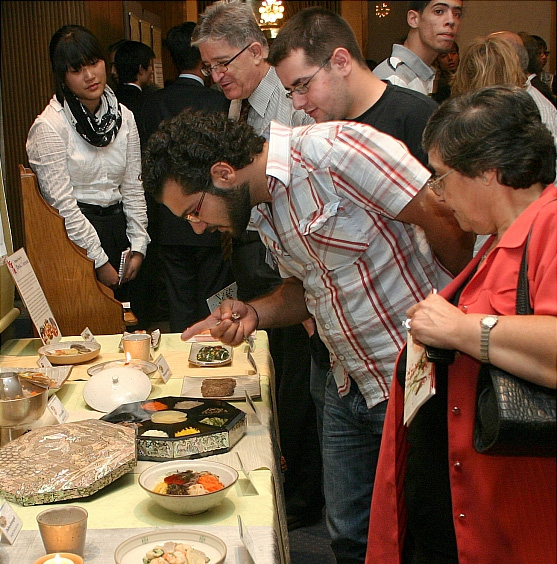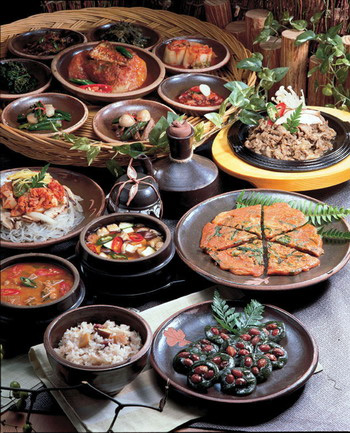 영어토론방 영어토론방 | Home>영어토론방 |
Wellbeing Globalization of Korean Food
페이지 정보

본문

Excellence of Korean Cuisine: A Healthy Diet
A continuous intake of traditional Korean food has proven to prevent adult diseases, including obesity. Such effects were confirmed in a research conducted in 2008 by the Ministry for Food, Agriculture, Forestry, and Fisheries and the Medical School of Cheonbuk University. The subjects were divided into two groups – one group stuck to a Korean diet and the other group to a western diet. Results confirmed that the first group showed an increase in sperm activity and male hormones. Also, men in their 40s and 50s living in rural areas who rarely eat instant and processed foods proved to have higher reproductive performance compared to their counterparts in urban areas.
In addition, the subjects who followed a Korean diet had lower blood-sugar levels and insulin index as well as less risk of diabetes and other adult diseases, even when they had a high intake of carbohydrates through rice (compared to carbohydrates in hamburgers or pizzas).
Gochujang (red pepper paste) and dwenjang (soybean paste) also had significant effects on obesity. After 12 weeks, the subject group that ate gochujang saw a decrease in neutral fat, and another group that ate dwenjang for 12 weeks saw a decrease in visceral fat.

Kimchi is Korea’s most representative fermented food and has been selected as one of the world’s top 5 healthy foods by Health, an American monthly health magazine.
It has also been proven that a continuous intake of kimchi prevents aging and cancer. A research team from the Rural Development Administration found that whereas ordinary pro-aging cells age 54%, the rate of the cells processed with fermented kimchi decreased to 25% which is close to that of normal cells.
Also, the research found that kimchi that was fermented for 15 days had the biggest effect on anti-aging, which is when lactic acid zymogen is most active.
The research team also proved that the kimchi zymogen enhances the anti-cancer effect of garlic, ginger, ground red pepper, and green onion – all ingredients of kimchi.
According to research findings, whereas anti-cancer substance ‘Cis-platin’ showed 79% suppressant rate of cancer cell growth, the cancer-suppressant rate of garlic increased from 47% to 51% after fermentation; ginger from 29% to 38%; green onion from 38% to 48%, and ground red pepper from 46% to 56%. In other words, the research found that these ingredients for kimchi further increase anti-cancer effect as they ferment.
It is also noteworthy the research found that ‘capsaicin’ in ground red pepper – previously thought to cause cancer – in fact prevents cancer.
Also, the fact that kimchi has the highest anti-cancer effect when best fermented is proof that the ingredients interact with each other as they ferment, enhancing each ingredient’s anti-cancer effect.
Question
1. Korean food and Western food, which one do you eat more often and which do you prefer?
2. Compare and contrast Korean food and Western food, and their food culture as well.
3. Even though there are many merits in Korean food,
Korean traditional food could not be globalized so quickly, not like Japanese and Chinese food.
Can you think of any reason why? To globlize Korean food, what should be changed?
이 글은「대학연합영어토론동아리」www.pioneerclub.com에서 제공하는 영어토론 정보입니다.
댓글목록

실행하기님의 댓글
실행하기 작성일I think we are late. coz other countries such as Japan and China, they already prepare 21century that there will be culture competition around world. the reason why we can't promote Korean food like Japan is that we have no sense of food globalization, even goverment. Japan and China goverment has tried to expand thier culture power(such as food). but we have not. so I think that is the reson.

